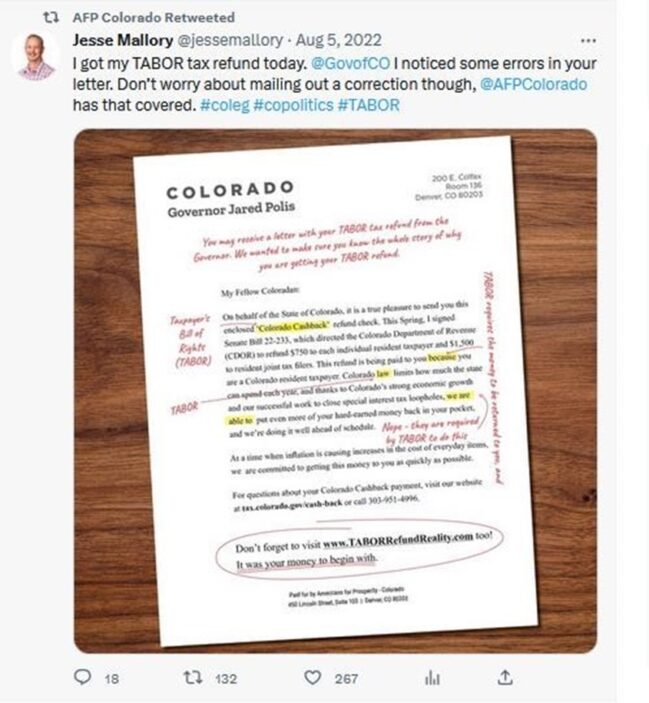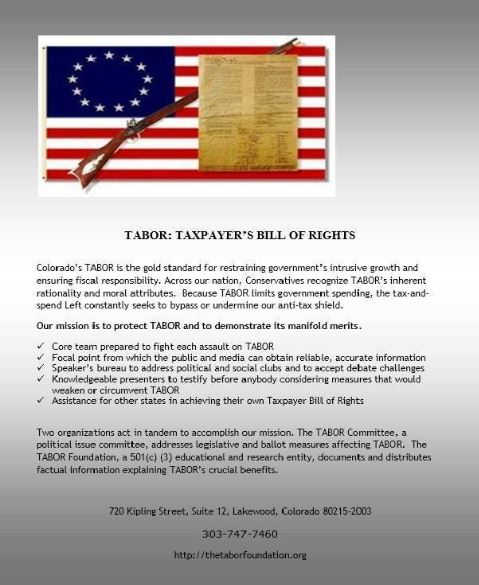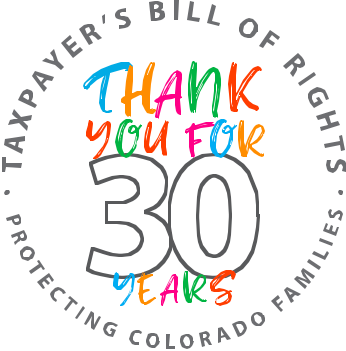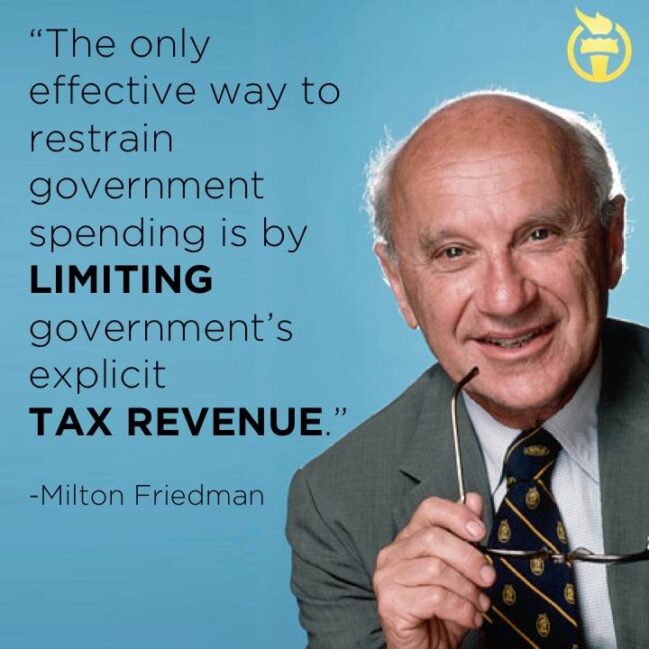TABOR supporter,
Did you know Americans For Prosperity has been promoting and protecting TABOR, the Taxpayer’s Bill of Rights?
Attached is a brochure with their latest activities.
You can learn more by checking their website, https://americansforprosperity.org/state/colorado/
The purpose of this letter is to share a list of Americans for Prosperity’s vigorous activities educating the public about TABOR over the last several months.
Since not everyone may have witnessed those efforts (much is visible on facebook and twitter), I’m including some social blurbs and photos. These blurbs just span back to the July-August 2022 period and I certainly haven’t included all their activities, though there’s more available.
AFP mailers to voters that refunds were thanks to TABOR.


Then, AFP engaged in a gas promotion with unleaded at $2.38 per gallon. AFP covered the difference between the $2.38 and the going rate of $4.45. While drivers waited in line to get the promo gas price, AFP shared information about the Taxpayer’s Bill of Rights, handed out promo materials and water. Continue reading






